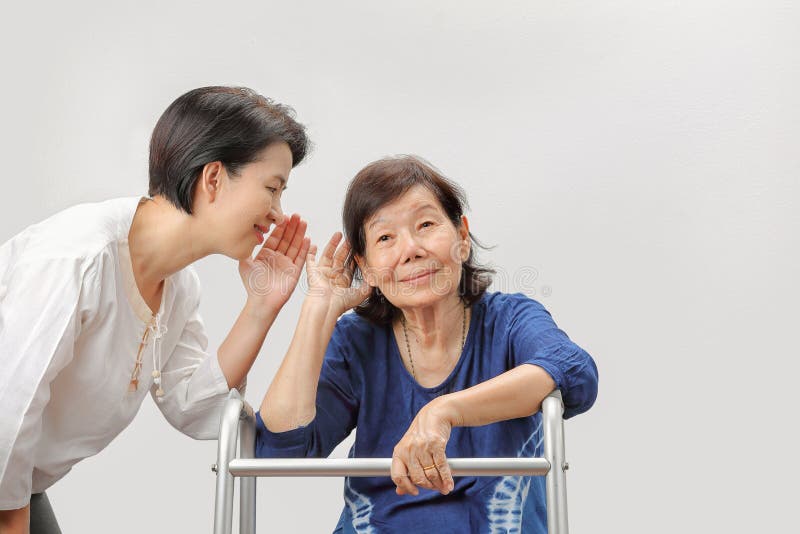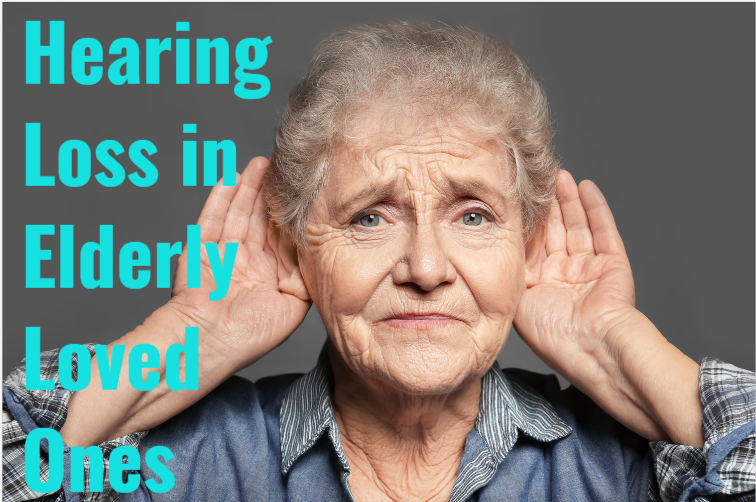Contents
Hearing Loss in Elderly
There’re several causes of hearing loss in the elderly. It can be the effect of toxins or triggered by an infection or an injury. However, there are solutions to correct hearing loss and balance in the elderly.
Loss of hearing and dementia is far more common in the elderly than we might think. According to research, about 15% of US older adults who have hearing loss affect their quality of life and ability to communicate.
You might be experiencing hearing loss and balance because of an infection, injury, or it could be triggered by genetics. People with hearing loss find it challenging and uncomfortable to communicate with friends and family.
Older adults who have hearing loss and dementia may become depressed or withdraw from others as they feel embarrassed and frustrated about not knowing what is being said. If hearing loss and balance are left untreated, it can get worse.
Moreover, according to studies, older adults with hearing loss are more at risk of developing dementia. It is because cognitive abilities decline faster in older adults with hearing loss. It means treating hearing problems in the elderly is crucial for their cognitive health.

Age-Related Hearing Loss in Elderly
With advancing age, you experience various changes in the way your body works. Hearing loss might be one of these. Age-related hearing loss in the elderly is a common concern that affects many adults. According to studies, 1 in 3 adults over 60 suffers some degree of hearing loss.
It is also called presbycusis, and though it isn’t a life-costing situation, it can significantly impact your quality of life.
Types of Hearing Loss in Elderly
There are various types of hearing loss in the elderly, including:
Sensorineural Hearing Loss
This hearing loss and balance in the elderly is triggered by damage to the auditory nerve to the brain or inner ear. Usually, damaging your ear may also occur due to head trauma, genetic causes, loud noise, or age-related factors.
Conductive Hearing Loss
Unlike Sensorineural hearing, conductive hearing loss is usually not a permanent hearing loss in the elderly. It generally occurs when ear wax, fluid, or any other foreign object is entered into the middle ear, preventing sound frequency from reaching the inner ear.
Ear Infection or Punctured Eardrum
Another culprit that could cause hearing loss in the elderly is an ear infection or punctured eardrum. The condition is usually repairable through medical treatment or surgery. Just ensure that you see your doctor so that they can treat the problem.
However, hearing loss in the elderly isn’t just about that. It’s also possible that you may suffer from more than one hearing loss type, damaging the outer and middle ear and the auditory nerve.
Common Causes of Age-Related Hearing Loss in Elderly
Hearing loss in the elderly occurs gradually over time, and many changes in the inner ear can trigger the condition. The most common culprit that could cause hearing loss and balance in the elderly is loud noise.
Loud Noise
Noise from loud music, lawnmowers, snowblowers, etc., can severely damage the inner year that could cause permanent hearing loss. However, noise-related hearing loss is preventable as you can move away from loud noise, turn down the sound of your TV or headphones, use earplugs, or any other ear protection.
The buildup of Earwax or Fluid
The buildup of earwax or fluid is another common cause of temporary hearing loss. It prevents sound waves from reaching the eardrum to the inner ear. If this is the condition, talk with your audiologist, who may suggest you a mild treatment to soften earwax.
Ototoxic Medications
Hearing loss in the elderly can also occur from taking certain medications. Ototoxic medications contribute to damaging the inner ear. Some of these medications are being used to treat life-threatening illnesses, such as cancer, serious infections, and heart disease. Some antibiotics are also ototoxic and can cause hearing loss.
Diabetes or High Blood Pressure
Some common health concerns in the elderly, such as diabetes or high blood pressure, could also cause hearing problems. Bacteria and viruses, a heart condition, a tumor, or brain injury may also trigger a hearing loss in the elderly.
Heredity
Another culprit that could contribute to hearing loss in the elderly is heredity. However, not all inherited forms of hearing damage take place at birth. Some of them, like otosclerosis, can trigger later in life.
Some other common causes of hearing loss and balance in the elderly include:
- Age-related structure changes in the inner ear.
- Poor blood circulation to the ear.
- Nerves impairment responsible for hearing.
- Ear hair damage transmits sound to the brain.
Symptoms of Hearing Loss in Elderly
Since hearing loss in the elderly occurs gradually over time, many older adults don’t realize they have trouble hearing. If you’re in your 60s or above and suffering from hearing loss, here are a few symptoms that suggest you may have age-related hearing loss.
- The speech of other people sounds mumbled or slurred. It means you can hear their voice, but are unable to understand.
- You cannot distinguish high-pitched sounds, such as “s” or “th”.
- It is hard for you to understand conversations, especially when there is background noise.
- You find it easier to hear men’s voices than women.
- Certain sounds are overly loud and annoying for you.
- You’re struggling with ringing in your ears (tinnitus).
Untreated Hearing Loss in Elderly
It isn’t easy to tell when an older adult is suffering from hearing loss. They may come across as confused. Moreover, hearing loss can also promote social isolation. It is because communication levels deteriorate quickly, and your loved ones might assume cognitive decline.
Unfortunately, many elderly do not pay much attention to it and convince themselves that they hear good enough, so they don’t need any medical attention.
How can Age-Related Hearing Loss Affect balance?
Hearing loss in the elderly can also encourage balance issues as it helps to create a lack of awareness of the surroundings. Eventually, it leads to a greater chance of stumbling, tripping, and falling. According to a John Hopkins Medicine study, people with mild hearing loss have greater chances of falling over.
The study further states that every 10 decibels of hearing loss increase the chances of falling by 1.5 times. It means hearing loss and balance in the elderly is more of a safety concern. If you have felt a lack of balance when walking or standing, you should see your doctor discover the underlying cause.
How is Age-Related Hearing Loss Diagnosed?
In case you have any of the above symptoms or age-related hearing loss, make sure to visit your audiologist so that they can diagnose the condition. Your doctor may take a thorough physical examination before ruling out other hearing loss causes. They may also use an otoscope to examine your ears from inside.
If your doctor cannot find any cause of the symptoms, they may rule it out as an age-related hearing loss. They may send you to an audiologist who may perform a hearing test to determine the condition and loss.
Devices to Help Reduce Hearing Loss
Your doctor or audiologist may suggest you get a hearing aid. These are electronic devices that run on a battery and make sounds more precise and louder. Since several hearing aid devices, make sure the cost is covered in your insurance before buying one. Moreover, check if the device has a trial period to check if it is right for you.
Alerting devices, certain mobile apps, and assisted-listening devices can help some people suffering from hearing loss. If you’re experiencing severe hearing loss, you may want to use cochlear implants.
If you’re struggling with mild to moderate hearing loss, you may want to try over-the-counter (OTC) hearing aids. They are new hearing devices, and you don’t need any prescription to buy one. They help to make certain sounds more precise and louder so you can listen, communicate, and perform your daily activities.
Preventive Measures
While you can’t do much to prevent age-related hearing loss in the elderly, you can take a few steps to prevent it from getting worse. People with age-related hearing loss may want to try:
- If you have diabetes, heart disease, or any other circulatory problems, make sure to exercise, follow your diet and your doctor’s guidelines. Remember that the health of hair cells present in the inner ear depends on good blood circulation. So, exercising and maintaining a healthy weight can promote hearing health.
- If you are taking any medications, consult with your doctor to know whether or not they are linked to hearing loss. If so, discuss if they can prescribe an alternative.
- Make sure to move away from louder noises. According to NIDCD research, noise-related hearing loss is the only preventable type. Sounds exceeding 85 decibels, such as emergency sirens, motorcycles, or rock concerts, can cause permanent hearing loss. Moreover, wearing earplugs or other ear protection can also help prevent hearing loss.
Read More






